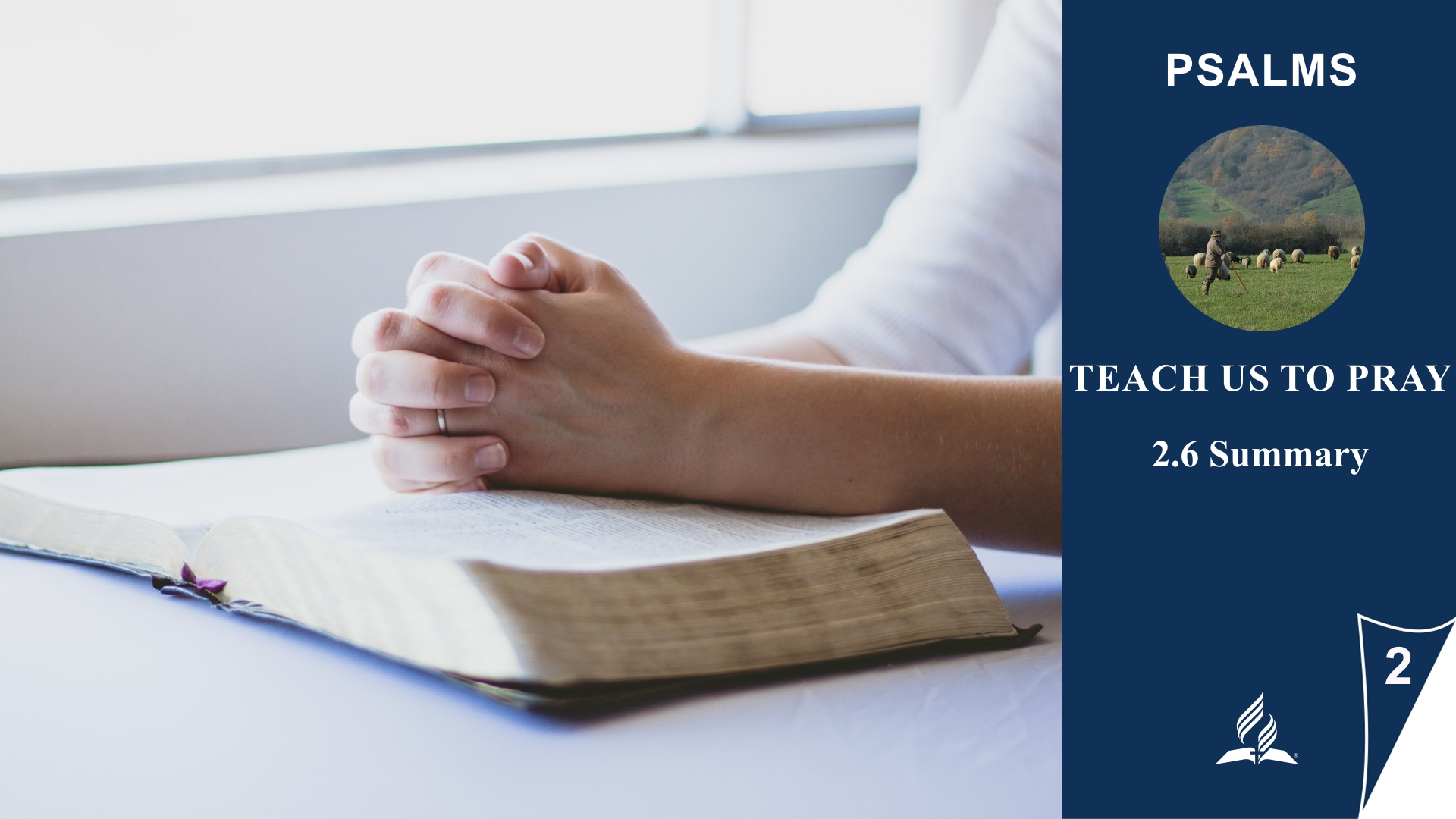

2.6 Summary
Lesson 2 focuses on reading and understanding the Psalms, particularly the lament Psalms. Here are the key points summarized:
-
Reading Psalms in Daily Life:
-
It is recommended to regularly set aside time for reading the Psalms, either following a predetermined order or choosing Psalms that resonate with one’s current life situation.
-
-
Various Types of Psalms:
-
Psalms cover a variety of life aspects, including lament, thanksgiving, praise, seeking wisdom, repentance, and more. Individuals are encouraged to select Psalms that align with their specific circumstances.
-
-
Reflection and Prayer:
-
While reading Psalms, one should reflect on how the psalmist addresses God and why they pray in a certain way. Comparing one’s own situation with that of the psalmist is recommended, engaging in prayer and reflection.
-
-
Challenges and Corrections:
-
When a Psalm presents challenges, individuals should consider whether it corrects false hopes. It is emphasized to view the message of the Psalm in the light of Christ’s work.
-
-
Motivations for Prayer:
-
Seeking new motivations for prayer suggested by the Psalm and reflecting on their significance for personal life, the community, and the world is encouraged.
-
-
Intercession and Application:
-
If a Psalm relates to someone else’s situation, there is encouragement to intercede on their behalf. The key point is that the Psalms cover many aspects of life, enriching individuals when read and internalized.
-
The Psalms provide a versatile source of inspiration and guidance for the prayer life of believers, extending beyond individual situations to foster compassion and support for others.
Comfort and Hope: Psalms as Companions in Daily Life
The connection of Lesson 2 with our daily lives and faith lies in the practical application of the Psalms in various aspects of our spiritual lives. Here are some connections:
-
Daily Integration of Psalms:
-
Lesson 2 emphasizes the importance of regularly taking time to read the Psalms. This practice can be integrated into daily life to receive spiritual nourishment and encouragement.
-
-
Relevance for Different Life Phases:
-
The Psalms cover a broad range of human experiences. By reading and praying the Psalms, believers can find comfort, wisdom, and guidance for different phases of life, whether in times of joy, sorrow, gratitude, or seeking God.
-
-
Reflection on Personal Situations:
-
The lesson encourages reflecting on how the psalmist’s situation relates to our own. This reflection allows bringing personal feelings and experiences before God and considering them in the light of Scripture.
-
-
Christocentric Approach:
-
Contemplating the Psalms in the light of Christ and the Cross enables grasping the deeper meaning of the Psalms for our faith. Christ is presented as the ultimate answer to human needs and desires.
-
-
Praying for Others:
-
The Psalms provide guidance for intercession and praying for others, especially when their situation aligns with the themes of the Psalms. This fosters compassion for the needs of others and strengthens fellowship in faith.
-
-
Faith Formation and Transformation:
-
The intentional use of the Psalms allows for continuous faith formation and spiritual transformation. The Psalms serve not only as words of prayer but as a means through which God’s Word is deeply anchored in the heart.
-
Overall, Lesson 2 emphasizes the relevance of the Psalms to our daily spiritual lives. By integrating these biblical texts into our prayer practices and reflections, we can build a deeper connection with God and strengthen our faith in various life situations.
(Visited 13 times, 1 visits today)




















